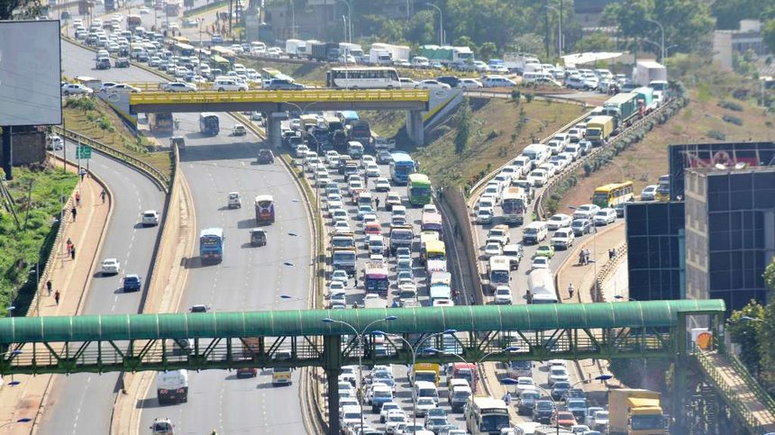Ksh 8.1 billion Allocated to Already Completed Projects
There are several laws that stipulate what should be done before, during and after budget making in Kenya. However, a report by Parliamentary Budget Office reveals that most of these laws have continuously been ignored hence questioning transparency in the 2020/21 budget.

The National Treasury broke numerous laws on budget making while developing Kenya’s 2020/2021 budget. This noncompliance contributed to some Ministries and State Departments requesting funding for fishy projects.
This is revealed in a report titled “Unpacking the Estimates of Revenue and Expenditure for 2020/2021” released in May 2020 by independent economists from the Parliamentary Budget Office.
The Transport and Infrastructure Ministry is under the spotlight for being allocated Sh8.1 billion in the draft 2020-21 budget to finance 64 roads. Surprisingly, records at the same ministry show the roads were already completed.
Ministries, State Departments and agencies are required to submit a quarterly projection to the National Treasury detailing projects or sub-programmes they intend to implement.
Kitutu Chache South MP Richard Onyonka, also a member of the House Implementation Committee, said that the budget has always been used as a tool for corruption.
“It is not surprising to have such suspicious projects in the budget for funding to benefit some individuals. This graft vice can only be curbed if every state institution presents itemised budget expenditures for scrutiny and approval,” Onyonka said.
Misuse of public funds
Providing National Treasury with the quarterly projection enables it to align its cash releases to specific projects or sub-programmes and curb corruption. This information should be availed before the proposed budget estimates are submitted in Parliament by April 30.
Noncompliance to this requirement led to the Transport Ministry’s reported allocations of suspicious budgets for roads.
“Analysis of the list of projects reveals that some projects have been allocated resources despite having been finalized,” states the report. The Parliamentary Budget Office report’s Annex 3, details the 64 road projects scattered across the country.
Nairobi-Thika Highway –Not the only one
Some roads like the Nairobi-Thika Highway Improvement project listed as having been completed in July 2012 is allocated Sh300 million. The five-year project implemented during the former President Mwai Kibaki’s administration started in July 2007 costing Sh16.3 billion. Surprisingly, the Transport Ministry holds that there is a deficit of Sh1.78 billion to finish though its records showing that the project was completed.
Other completed projects include Sigiri Bridge and Approaches allocated Sh20 million, Waiyaki Way-Redhill Link Road (Sh150 million), Dualling Thika-Kenol-Marua road (Sh4.3 billion) and Nairobi Southern Bypass (Sh100 million).
Experts expose shameful acts
The Parliamentary Budget Office (PBO) reveal that National Treasury didn’t comply with the law requiring it to submit to Parliament the Macroeconomic and Fiscal Framework before submitting the 2020-21 budget estimates.
“This information shall be accompanied by a list of specific projects that will benefit from these funds and realign this submission to the Medium-Term Debt Strategy,” notes the PBO report.
The Sports Ministry under Cabinet Secretary Amina Mohammed failed to give details of projects to be financed through the Sports Fund. This blocked the Treasury to direct money to specific projects.
The nondisclosure of specific projects to be funded, leads to inconsistencies between the budget books and summarized budget information, leading to financing deficits.
“Best practice requires that there is sufficient disclosure of all expenditure items,” the PBO report state.
The proposals should be submitted to National Treasury latest by the end of January every year. This should give information on the projected revenue and expenditure for the succeeding financial year.
Lack of public participation
Although public participation is lawfully required in making decisions affecting citizens like budget making, Kenyans were not involved in the 2020-21 budget.
“Public participation is under threat. There is no evidence that the input of the public, both from the executive and legislature influences budget decisions,” reads the PBO report.
Even the citizens’ budget that contains views from public participation was not published by the National Treasury as required by the law. RoGGKenya published an article on the Timeline of Budget Making click on it for further details.
No Auditor General
It is not just budgeting process that is not transparent. Critical positions of those who should oversite them like Auditor General has not been filled.
Parliament demands that such critical positions should not remain vacant for so long after the incumbent vacates.
However, the auditor general’s position has been vacant for almost a year now after the term of former office holder Edward Ouko expired.
The National Treasury also did not obey the debt ceiling which is fixed at Sh9 trillion. The 2020-21 budget has a deficit of Sh823.2 billion. The government plans to raise this amount through borrowing. Foreign borrowing will account for 40 percent while the remaining 60 percent will be domestic borrowing.
Kenya’s public debt stood at Sh6.3 trillion by the end of March this year. Domestic debt accounted for Sh2.9 trillion while external debt was Sh3.1 trillion.
What journalists should do:
1. Access the proposed budget estimates uploaded on National Treasury website and scrutinize the allocations.
2. Check the projects that various ministries, State departments and agencies want to finance in the upcoming financial year starting 1st July to ascertain their completion status.
3. Apprise themselves with laws governing budget making like the Public Finance Management Act, 2012 and the Public Participation law to check if they were complied.
4. Establish whether government institutions implemented numerous Parliament resolutions on budget making, among others.
5. Inform the public about specific laws broken during the budget-making process.
Admiring the hard work you put into your blog and detailed information you offer.
It’s great to come across a blog every once in a
while that isn’t the same outdated rehashed information. Fantastic read!
I’ve saved your site and I’m including your RSS feeds to
my Google account.
Thank you. Keep coming back for more.